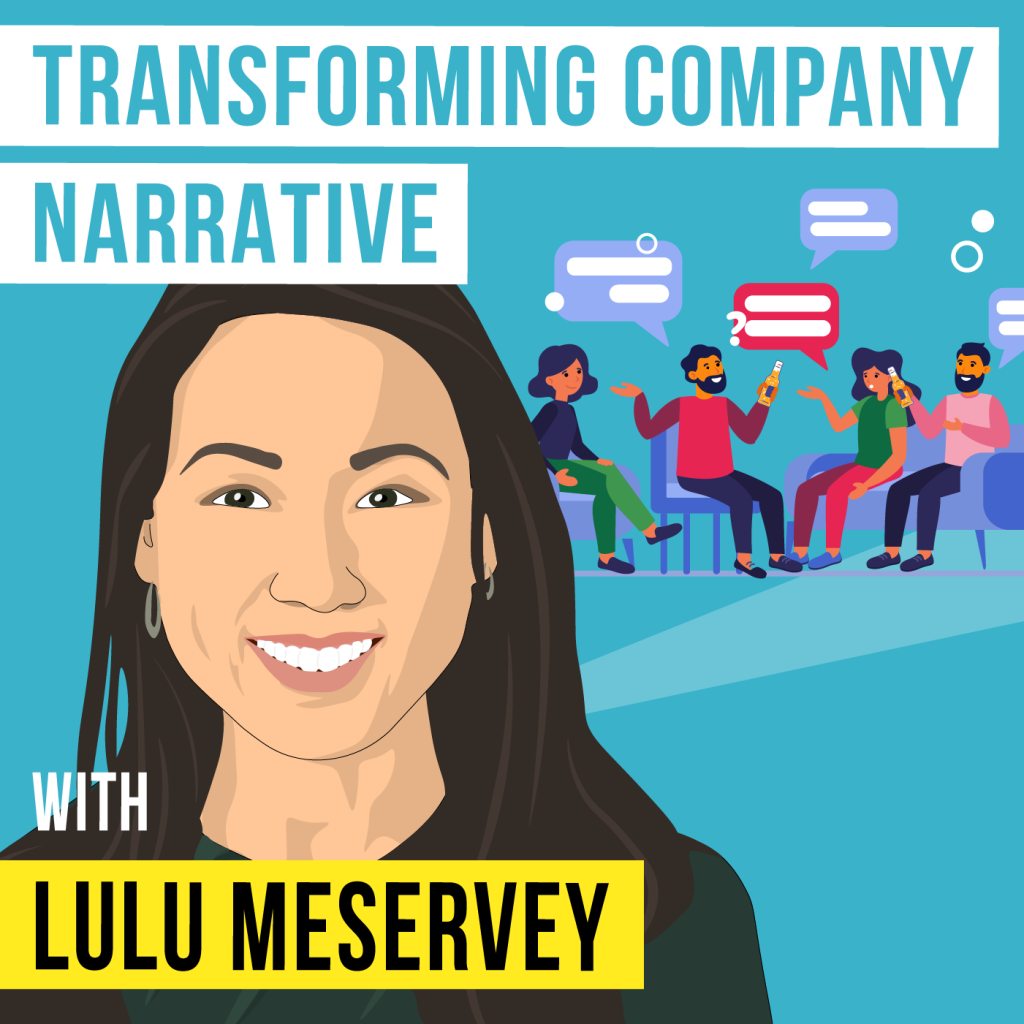
Lulu Cheng Meservey is the founder of Rostra, the ‘PR’ firm du jour, and the high priestess of the ‘go direct’ movement, where founders are encouraged to front the message about their co to the world, instead of relying on internal or external PR teams to front their point of view. I first came across Lulu on Twitter when Dwarkesh Patel thanked her for connecting him to Daniel Yergin (resulting in a wonderful podcast episode). Hmm, I said who is this? And then I read her site (rostra.co) and her message for why founders should go direct, and I was impressed. So when this episode with Patrick O’Shaughnessy was released, I knew I had to check it out.
The episode is a great introduction to Lulu’s and Rostra’s philosophy of going direct. She covers
- Why founders should go direct – no transmission loss in messaging, all the tools of going direct are there, many have good distribution reach through their social followers etc.
- What the key elements of going direct are – loved the line on communication being a vector and not a scalar, as in, it is important to have a communication direction or objective attached to each message
- Why founders should write a manifesto whilst going direct and the contents of the manifesto
- The specific publication matters less than the right journalist for sharing the message with. Individuals >> Institutions (similar to how founders sometimes select a great Partner a Tier2 fund over a so so Partner at a Tier1 fund)
- How a good PR firm can help you ‘read the room’ (more on this below)
- Crisis PR, and why CEOs should apologise less, and do wartime scenario exercises
Links to excerpts of her podcast episode I particularly found relevant.
Rostra’s raison d’etre, and what it says about where content alpha lies
One interesting point she made is on the raison d’etre for Rostra, which I see as a model of an open source co (similar to open source software monetisation model), as in the co lays out all of its trade secrets for free, and charges for help around edge cases or 1% of scenarios. She says in a world where founders have all the tools for going direct and also distribution, the value of a good PR firm is helping you read the room, as in, is the message you are going with broadly still as relevant as last week, or do you need to tinker with a little bit more, and thus give you feedback around whether your message will land well. It is also helping you mitigate the curse of knowledge. This is when you are so well-versed with a concept (your product / your tech) that you think everyone else knows it as much as you do and stop seeing it from the layperson’s eyes. This is where a good PR person can help you with feedback for you to recalibrate your message appropriately. It is sort of like a book editor, except that many book editors are also gatekeepers in addition to their editorial advisory services, so this is just the editor sans gatekeeping.
This also harks to a larger point around where the alpha in content lies, and the importance of curation and the curator. If anyone can create content thanks to GPT / AI tools, and many of these folks also have larger distribution then what is the need for media publications or media services? Primarily it will be around two areas I think
- Editorial support for high stakes content: Support on creation of potentially needle-moving / high stakes content by ‘reading the room’ / providing inputs on landing the message. Because this is high stakes content, service providers can charge a lot more than usual.
- Curating interestingness: Yes, a creator has massive distribution, but reader or user attention is the new chokepoint, and hence the value of a curator who is valued for their taste in curation, or commentary contextualising a topic’s importance, and thus becomes a trusted recommender or rebundler of content. Like Benedict Evans’ newsletter, or The Diff’s longreads mail etc. Analog media had inbuilt constraints built in (on creating / distribution), and digital media removed both creating and distribution constraints. But time is still finite, and there is a ton of content now suddenly hitting us, so the chokepoint has moved to what we can be attentive about, and hence the importance of attention agents whi tell us where to direct our attention to, and where we can safely ignore, and why. A great curator can command as much alpha as a good creator.
